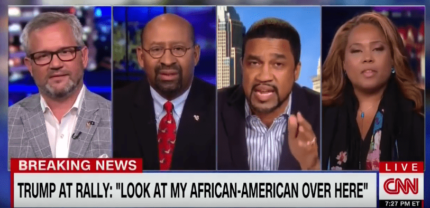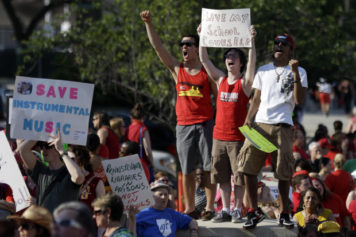Philadelphia city officials agreed at the last minute yesterday to borrow $50 million in order to open schools on time, putting to rest fears of parents across the city. Though the schools will open on Sept. 9, the question remains: What kind of education will take place inside of them?
“The concept is just jaw-dropping,” Helen Gym, who has three children in the city’s public schools, told the New York Times. “Nobody is talking about what it takes to get a child educated. It’s just about what the lowest number is needed to get the bare minimum. That’s what we’re talking about here: the deliberate starvation of one of the nation’s biggest school districts.”
With the promised $50 million in emergency funding, the district has begun rehiring about 1,000 employees who were laid off this summer. Yet the prospects for the schools still appear to be dire for some time to come.
Mayor Michael Nutter said he would take out general obligation bonds to come up with the $50 million for the schools—which may endanger the city’s hard-won credit rating by taking on medium-term debt to pay for day-to-day operations, which is seen by municipal analysts as a sign of desperation.
The mayor said that he hoped to pay back the debt by using future sales tax revenues, though he will need the approval of the City Council whose president, Darrell L. Clarke, has said he wanted to use some of that money for city workers’ pensions.
Last week school superintendent William R. Hite Jr. sent a shockwave through the city, stunning already heavy-hearted parents and students by announcing that Philly schools may not open next month unless the school district gets an additional $50 million.
At a press conference, Hite looked into the cameras and said, give us more money or else—the district’s 218 schools might not open on Sept. 9 as scheduled, or they might open only for half a day, or only some schools might open.
“Without the funds to restore crucial staff members, we cannot open functional schools, run them responsibly or provide a quality education to students,” Hite said in a statement to the school community. “I am deeply dismayed that we are here today, facing these circumstances. Our students are the most important part of this equation and it is both saddening and frustrating to be in the position of telling them and their families that I do not know when their education will resume. They did not create these circumstances, yet they will be most impacted by any delay.”
The funding woes in Philadelphia, the nation’s eighth-largest district, have been ongoing for months, culminating with the district staring at a $304 million shortfall in June. At that time, Philadelphia shocked the nation when it fired 3,859 district employees, including 127 assistant principals and nearly 600 teachers, including many arts and music teachers and sports coaches—effectively wiping out the district’s extracurricular offerings.
In a stark illustration of a state’s disturbing priorities, Pennsylvania was forcing the Philadelphia schools to open in the fall without new books, paper, clubs, counselors, librarians, assistant principals, secretaries, sports, art and music, while at the same time the state found enough money to build a $400 million prison just outside the city.
While observers use words like “draconian” and “devastating” to describe the cuts, the blows to the Philadelphia schools keep coming: With 33 percent of its 200,000 students in charter schools, in March the district decided to close about 30 underused schools.

